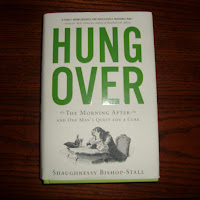Hangovers are at least as old as the technology to brew
alcohol to supplement the small amount that can be found naturally in overripe
fruit hanging in trees. That technology is prehistoric, but the English word
“hangover” is actually fairly recent, the earliest known appearance in print
being in a 1904 slang dictionary. Before then the word was “crapulence,” which
I rather like better though one is likely to be misunderstood using the term today.
No matter how you say it (“cruda” [rawness] in New World Spanish, “resaca”
[detritus from receding surf] in Old World Spanish, “Kater” [tomcat – you
figure that one out] in German, etc.), it’s an unpleasantness most of us have
experienced.
I wasn’t precocious with my vices in my youth (which I say
with more embarrassment than pride) and didn’t experience a full-blown hangover
until college. (It was legal: drinking age in DC then was 18.) The primary
components that night were red wine and excessive conviviality with similarly
bibulous friends. Back in my own dorm room, I went to bed with the stereo still
on. Sometime after 4 a.m. I awakened to an awful sensation. I leapt out of bed
and hurried down the hallway to the bathroom. You know what happened there. I
returned my room still nauseated. Playing on the stereo (no kidding) was
Melanie’s Leftover Wine,
a song that to this day I cannot hear without queasiness, though I still have
the album. A couple more hours of sleep did not prevent the subsequent daylight
hours from being less than my happiest. I wish I could say that was my last such
experience as well as the first, but it wasn’t. Like Shakespeare “I have very
poor and unhappy brains for drinking” (Othello).
However, unlike Shakespeare, who purportedly died of a hangover, I eventually (late
20s) curtailed my intake accordingly.
 |
| Scene of the crime: My dorm room at GWU |
Lefty Frizzell & Johnny Bond - Sick, Sober And Sorry (1957)

No comments:
Post a Comment